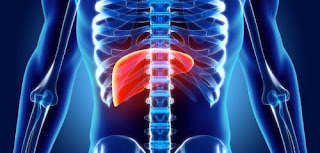Your Liver, the Seat of Emotional Well-being

In Leviticus 23, it is commanded to fast at least one day each year for spiritual reasons and as part of God’s plan to usher in his kingdom. However, there is a hidden health benefit. Once a year, God allowed us to rebook our immune systems. He’s thoughtful like that. What happens, though, when we make intermittent fasting part of our lifestyle? Recent scientific evidence suggests fasting reduces liver triglycerides and increases the expression of genes that prevent fat from being stored in the liver (Muenchen 2016). Fasting is also associated with increased lifespan and reduced risk of diseases, including cancer and diabetes. What are triglycerides? They are a type of fat, also called lipid, found in the blood. Our bodies convert calories it does not need right away into triglycerides when we eat. These fats, lipids, are then stored in the body’s fat cells for later use between meals. When we make it a habit of eating more calories from high carbohydrate foods than the body b

